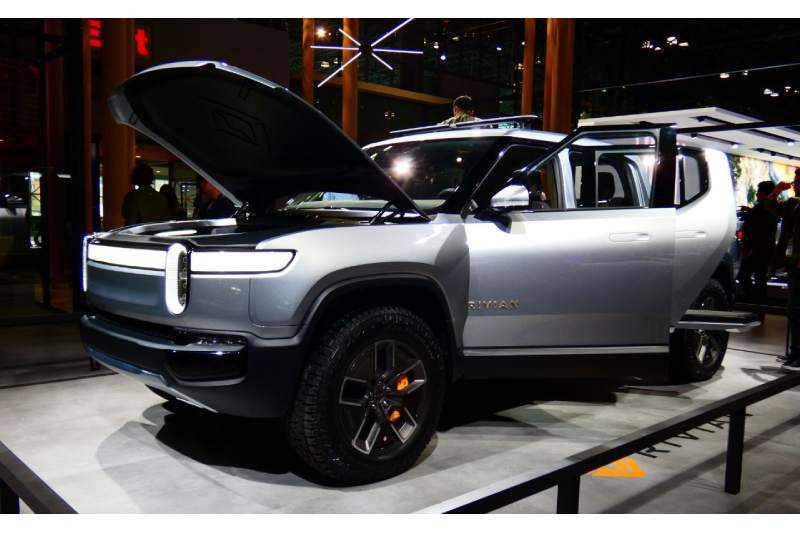As manufacturers of all sizes reevaluate their approaches in a stalling electric-vehicle industry, Rivian Automotive Inc. will receive a much-needed cash infusion through a new cooperation with Volkswagen AG.
Plans for a joint venture between the firms were unveiled, with VW contributing an initial $1 billion to Rivian and perhaps up to $4 billion more in the future. As compensation, VW will receive access to the startup’s technology for use in its own electric vehicles (EVs) and work with a partner to create software and “next-generation” battery-powered cars.
After the news on Tuesday, shares of Rivian surged more than 50% in after-hours trading, recovering nearly half of the stock’s losses for the year.
The unexpected partnership gives the electric vehicle manufacturer a financial lifeline as it has had difficulty increasing output and delivery of its electric SUV and truck models. Rivian put a stop to plans in March to construct a new manufacturing facility in Georgia in order to save money while dealing with significant losses that totaled almost $39,000 for each car manufactured during the previous quarter.
The action is a result of broader auto sector layoffs brought on by an unanticipated decline in demand for electric cars. General Motors Co. recently stated that it will take “decades” for the EV industry to flourish, while Ford Motor Co. is decreasing investment on EVs by $12 billion and postponing the opening of new facilities and models powered by batteries. Rivian and other pure-play EV manufacturers are struggling as a result of mainstream consumers’ unwillingness to embrace the electric age. Even Tesla Inc., the market leader, is seeing declining profit margins and underwhelming sales.
“The cost of continuing to go it alone is too high and investors are less keen on EV companies than when Rivian started,” clinical professor Erik Gordon of the University of Michigan’s Ross School of Business stated.
The firms released a joint statement stating that VW and Rivian will “equally control and own” the new enterprise.
Through an unsecured convertible note that will exchange into Rivian shares on or after December 1st, VW intends to acquire the initial $1 billion equity interest in Rivian. The largest shareholder in Rivian is Amazon.com Inc., with a 16% stake that was valued at around $2 billion as of Tuesday’s close.
Subsequently, the agreement mandates that VW spend an extra $2 billion in Rivian shares in two equal installments in 2025 and 2026. Additionally, the German manufacturer plans to contribute $2 billion to the joint venture through a loan that will be accessible in 2026 and a payment upon the business’s founding.
Rivian finds the agreement’s structure to be advantageous. Even if investors might give up some control to VW, if Rivian shares rise above their current price, there would be less equity dilution to bear and VW would ultimately hold a lower stake in the business after acquiring shares.
During a conference call after the news, RJ Scaringe, the CEO of Rivian, stated that the company will be able to proceed with its plans to construct the new facility in Georgia with VW’s backing. By the end of the decade, Rivian is still required by contract to invest $5 billion in the Georgia project.
VW, the massive German automaker, will now have access to Rivian’s EV architecture and software after years of battling to produce plug-in cars that are as functional and efficient as Tesla’s.
Rivian has already tried forming alliances with well-known automakers. It gave up on its ambitions to work with Ford, an early investor, to jointly develop EVs in November 2021. Additionally, it abandoned a contract with Mercedes-Benz to produce electric vans in December 2022.
